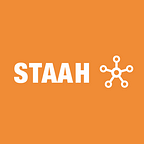Blogging is a lot more than writing and posting photos. It is about being able to deliver — with ease — content that is engaging and the ability to customise it to reflect your brand. While there are free blogging options available, we recommend you go for the paid versions that have advanced features that will enable your blog to play an important role in acquiring traffic and providing yet another platform for conversion — getting those all-important bookings.
WordPress.org
This open-source software is the most popular platform for blogs and websites — one in four websites are built on WordPress! A self-hosted solution, you will need to sign up with a WordPress hosting providers like BlueHost, Hostgator and DreamHost.
It has a massive number of designs available, some free and others available at a price. It has thousands of plugins to help you customise and optimise your blog. WordPress is very easy to use, and you get stuck, finding another WordPress user to help is quite easy. They provide great online guides as well. It may be tricky getting started for some being a self-hosted platform, but once you’re away, it’s a breeze.
Our recommendation: This platform would be our top choice get your blog started on.
WordPress.com
Not to be confused with WordPress.org, this is like any other free blogging platform — they own your content and can monetise it by showing ads on your posts. Besides you don’t get a custom domain unless you pay for it — what do you think is more trusted, blog.staah.wordpress.com or blog.staah.com?
Unlike WordPress.org, you don’t download any software. You just sign up for an account and away you go. Hosting is included, whether you are on a free or paid plan. So set-up is a lot simpler as is the content management system (CMS). There are plenty of designs or templates to choose from, though they’re fewer than WordPress.org. This platform comes with features like sharing, stats, comments, and polls, but you cannot install third-party plugins that give your blog the edge in this competitive environment.
Our recommendation: It is great for professional bloggers, but we’d still put our money on WordPress.org for the level of customisation it offers.
Tumblr
This is a great short-form microblogging platform that comes with a community of bloggers ready to promote your content to. It is super simple to use, offers plenty of designs (although most of them come at a cost) and hosting. You can hook your custom domain to it, but will need someone with techie inclination to do this.
Our recommendation: It’s great for personal bloggers, but not the platform for hoteliers looking for bookings.
Blogger
An old-school blogging platform by Google, it has limited designs and external plugins. It is very easy to use and is a self-hosted platform, but it is more suitable for personal and hobby bloggers.
Our recommendation: Don’t go with this because of its limited options.
Ghost
This is a simplified WordPress.org, but lacks many of the latter’s advanced features. It is a downloadable software. You can choose your own host or with the Ghost Pro plan, hosting is included. It has a great design library and is very easy to use, albeit like WordPress, you do need some time to get set-up. It comes with some key plugins for SEO, social media, comments etc. Apart from that, no external plugins are required.
Our recommendation: It’s good but has a long while to go before it gives WordPress.org a run for its money. If you’re going for a downloadable software type platform blog, go for WordPress.org for its advanced features.
Medium
Another easy to use platform, Medium is a community of writers and bloggers, all using the same looking site design to share their opinions and stories on various topics. It has become quite popular in the last couple of years and even allows you to hook up your blog to a custom domain (something other than medium.com/@name!). But it comes with no designs and plugins.
Our recommendation: It’s good for personal bloggers, not hoteliers.
Squarespace
An extremely user-friendly platform, it provides website building and hosting service. Launching blogs is a piece of cake with Squarespace and managing it even easier with an intuitive and powerful CMS. Using its LayoutEngine, you can even customise the content of your blog using drag-and-drop. It is subscription based — no free option — and includes hosting and a custom domain.
Our recommendation: It is far more intuitive than WordPress. If you want to build your blog and website all on your own, Squarespace is great. However, if you’re looking for only a blog that can be integrated with an existing website, Squarespace is a bit too advanced.
Wix
It is similar to Squarespace being a website builder and a hosting service, but executed a little differently. You can get a free account (@name.wix.com), but a small fee will get you a custom domain. It is intuitive and easy-to-use, not as much as Squarespace, but definitely does not require a tech brain to execute.
Our recommendation: Like Squarespace, if you want just a blog, there are other options that are more suitable.
In addition to the above, there are many other platforms such as Joomla, Weebly and Drupal. However fewer users’ means there is lesser support and may appear clunkier to use for the non-technically inclined. Are you already using one of the platforms we’ve mentioned here? How would you rate it? Which platforms would you recommend to other busy hoteliers? We’d love to hear your views.
This article is originally published by STAAH. Keep up to date with the latest hotelier’s tips and trends at STAAH Blog.
